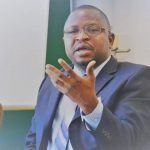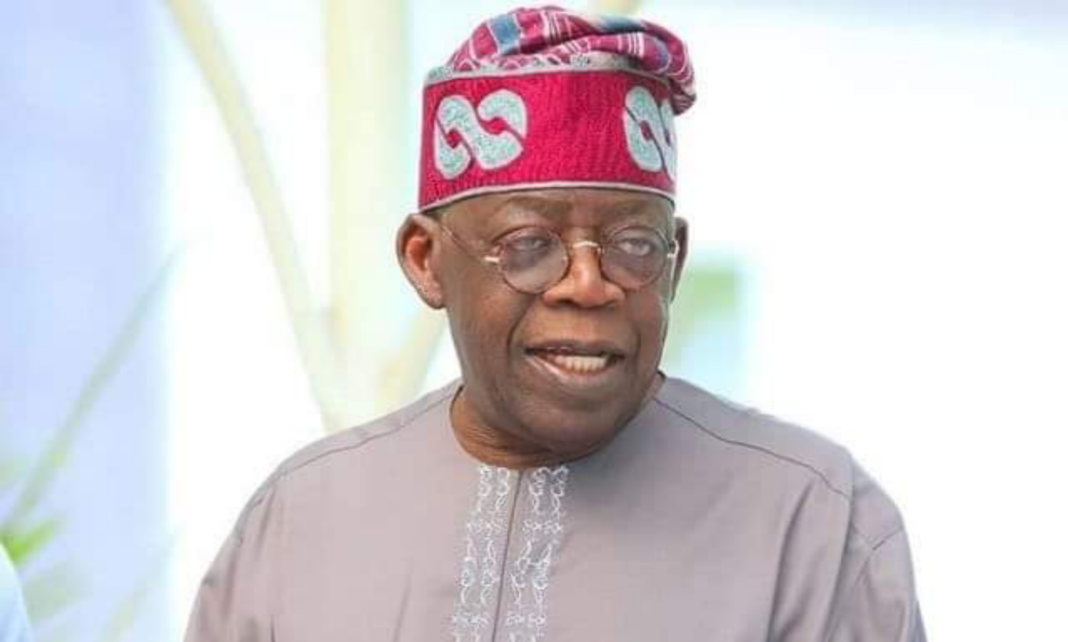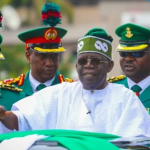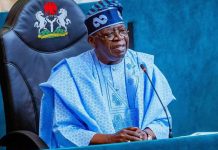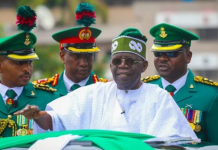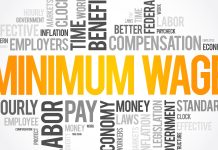I resent Bola Tinubu’s politics and don’t want him to be president if I can help it. In a January 12 Facebook update, I wrote, “I’d hate for him to be president because he is too sick, too old, too steeped in fraud (even his name, age, education, and origins are frauds), and too much like Buhari whose ‘legacy’ of poverty and ineptitude he said he’ll ‘continue with’ to be an option.”
But I must admit that he is the victim of sustained, at times innocent and at other times intentional, mis- and disinformation regarding his age and postsecondary education. When I encounter superior facts that challenge or confute what I know, I yield and admit my error without hesitation.
For example, in 2015, I lent my voice to the whispering campaign that Goodluck Jonathan didn’t earn the PhD he said he had. Loads of circumstantial evidence, not least Jonathan’s own resistance to providing evidence for the completion of his degree, conferred some credibility to the suspicion that he didn’t complete his degree.
However, in late 2015, I went out of my way to inquire from people who should know at the University of Port Harcourt and found information, which both Goodluck Jonathan and the administrators at Uniport were reluctant to share, that answered the questions people asked about Jonathan’s doctoral education. On September 19, 2015, I wrote a column titled “New Evidence that Goodluck Jonathan’s PhD May be Genuine” and became the first person to publish the title of his doctoral dissertation and the name of his doctoral supervisor.
Similarly, when I discovered that Muhammadu Buhari did indeed take his West African School Certificate in 1961 and got five credits and one pass, contrary to popular notions that he didn’t, I revised my opinion. (See, for example, my August 14, 2021, column titled “Top 5 Lies about Buhari That Won’t Go Away,” where I also showed that Buhari’s age declaration has been consistent since he was at least 18 in 1961).
Well, the Punch of January 7 reported that Chicago State University wrote to it to confirm that Tinubu did indeed graduate from the school after two years of study there. The Richard J. Daley College, a community college in Chicago, also confirmed that he did receive an associate degree (equivalent to an ordinary national diploma in Nigeria) from there. In other words, he spent two years at Richard Daley College for an associate degree and another two years at Chicago State University for a bachelor’s degree.
He got in trouble in 1999 because he wrote on his INEC forms that he’d graduated from the University of Chicago, a prestigious private university, when he actually graduated from Chicago State University, a Historically Black College and University (HBCU). He later blamed the “error” on Senator Tokunbo Afikuyomi.
So, the widespread claim that the genuineness of Tinubu’s university education is shrouded in mystery has no basis in fact.
What has some basis in fact, though, is that there is no public record for where he attended secondary school. In his 1999 INEC form that he admitted was error-ridden, he said he attended Government College, Ibadan, which turned out to be false.
In a January 22 article, Tinubu’s former press secretary by the name of Segun Ayobolu said in the aftermath of the controversy that attended the exposé of the inaccuracies in his educational credentials in his INEC form, Tinubu admitted to not having attended a secondary school after his primary school education “because of his poverty.”
Again, in spite of prevalent allegations to the contrary, Tinubu’s age has also been fairly consistent in public records. Records from the 1970s from Richard Daley College and Chicago State University, which I saw again a few days ago, show that he consistently gave his year of birth as 1952.
It was only his Chicago State University transcript that gave his year of birth as 1954, but this was attributed to a clerical error. In any case, 1954 is two years younger than 1952. Had the year been significantly older than 1952, there would have been a valid basis to speculate that it was his real birth year that he accidentally let out.
So, at no point did he ever officially claim to be born earlier than 1952. It’s entirely plausible that he was actually born earlier than 1952, but no one has shown any official documentation to authenticate that.
People whose birth wasn’t officially recorded, as I suspect was the case with Tinubu, have a lot of wiggle room to claim any age.
Recall the spat between Wole Soyinka and Olusegun Obasanjo sometime ago when Soyinka asked why Obasanjo was older than him when, in fact, Soyinka used to call Obasanjo by the honorific “egbon” (indicating Obasanjo was older than he was) when they were growing up in Abeokuta. Obasanjo responded by saying because his birth was not recorded when it happened (since his parents weren’t educated like Soyinka’s parents were), he made up a date of birth.
Tinubu can make the same argument, and it will be valid.
The viral video someone recorded about the multiple edits of his—and his first daughter’s— Wikipedia page to tweak his age is neither here nor there. Anyone can edit a Wikipedia page, and the Wikipedia pages of politically exposed people like Tinubu are often subject to vandalism, which Wikipedia defines as editing a page “in an intentionally disruptive or malicious manner. Vandalism includes any addition, removal, or modification that is intentionally humorous, nonsensical, a hoax, or degrading in any way.”
If someone maliciously changes someone’s date of birth on Wikipedia and an editor restores the original date (these are called “edit wars” in Wikipedia lingo), it is unfair to blame the owner of the page for this.
I, too, had no idea I had a Wikipedia page until a younger friend of mine by the name of Usman Zakari Ibrahim called my attention to it in 2017. In it, my year of birth was originally written as 1970. That is the year of my older brother’s birth, which is three years before my birth. Whoever or whatever program created the page later changed my birth year to 1973 after I complained. Does that suggest any foul play on my part?
Unlike Tinubu, my birth was recorded in a hospital. I have a real-time hospital birth certificate complete with the exact time I was born, the nurse and midwife who delivered me, my weight, and the ointment that was applied to my eyes after my birth. There is no dispute about when I was born, yet Wikipedia didn’t get my year of birth right the first time.
Nonetheless, what remain obscured by clouds of controversy are the place of Tinubu’s birth (he claims it’s Lagos, but many Lagos natives say he doesn’t even speak Yoruba with a Lagos accent), by what name he was initially known before he adopted his current name since it’s on record that the Tinubu family in Lagos disowned him, who his biological parents were, and why he assumed his currently identify.
Sahara Reporters also reported on Friday that he has flown abroad again to tend to his failing health—a few months after returning from London for the same reason. If this is true, he also needs to come clean about the true state of his health if he wants to be taken seriously as a contender for the presidency in 2023, particularly given Nigeria’s experience with Umar Musa Yar’adua (who died in office) and Muhammadu Buhari (who has become the world’s most infamous presidential medical tourist to London).
His supporters and minders say these concerns are irrelevant gotcha distractions intended merely to strip him of credibility. But their defensiveness won’t stop the concerns. In fact, it gives them wings and inspires more unflattering speculations about him.
